I love food, but I hate to cook. This hasn’t always been true, as I used to love cooking, but my teeny-tiny Korean kitchen and inability to make anything with the ingredients readily available in this country have turned that hobby into a dreaded task. But as my time in Korea has started to grow smaller, I’ve become more and more interested in learning how to cook some of my Korean favorites.
I first took a Korean cooking class my first month in the country, back when the only Korean food I’d really eaten was my hagwon’s absolutely disgusting lunch boxes. While I enjoyed the class, I didn’t get much out of it because I was still discovering my preferences inside Korean cuisine. Since I’ve become familiar with the food, I’ve been wanting to find another Korean cooking class.
With Kasey, a food lover and excellent cook, in town I knew it was the perfect time to sign up for a Korean cooking class at the Institute of Korean Royal Cuisine. She could learn more about an important part of Korean culture, and I could further develop my appreciation for it.
The Institute of Korean Royal Cuisine offers Korean cooking classes in English every second, third, and fourth Saturday of the month. The menu changes every week, and there is even the option to take a nine week course with certificate.
The course starts at 10 am, with an hour long demonstration of the dishes being prepared that class. Kasey and I unfortunately missed this part of the class, and rolled in at about 10:40 reeking of liquor after oversleeping, making a necessary trip to the convenience store, almost puking on the subway, and getting lost in a taxi. The night before had gone a little (lot) later than I’d originally planned, and we were now paying for it by having to walk into a full classroom 40 minutes late and scramble to find a seat. We were those students.
The institute’s location is absolutely beautiful, in a converted hanok, and the classroom is modern, bright, and large. After the demonstration finished, we split into groups of four and began cooking. Each person in the group was responsible for a dish, which immediately made me nervous. Someone who wasn’t Kasey or myself would have to eat this in an hour.
I was in charge of the dubu jorim, or soy sauce braised tofu. I plopped a big block of homemade tofu onto the cutting board and picked up a rather large knife. Lacking electrolytes and with the hangover induced shakes, I tentatively placed the knife on top of the block, ready to slice.
“I usually hold the knife a little closer, with my index finger like this.”
Doug, the translator and one of the assistants, came up behind me and demonstrated the correct way to hold the knife. The other assistants were flitting around the workspace, helping students as they needed it. Kasey was preparing her gamja sogogi jorim (braised potatoes and beef) solo, and the other two members of our group had the kimchi jjigae (kimchi stew) and dalkyalchim (egg souffle) under control by themselves.
Doug stuck to my side the entire morning. I wasn’t sure whether to be happy to have the help, or insulted that I looked like I needed it. Either way, it was nice to be in a cooking class with such individualized help.
After about an hour of cooking and plating, we sat down to enjoy the meal we had just prepared. All of the food was delicious, even my tofu that Doug had been so worried about, and it was interesting chatting with the diverse group of students enrolled in the class. Once we’d finished eating, we cleaned up and headed home- full, satisfied and in need of a good, long nap.
Visitor Information: For more information, visit the website or call 02-3673-1122-3. One class costs 40,000 won (around US$40) and includes all supplies, ingredients, instruction, and recipes. The nine week course is 320,000 won.
Do you enjoy taking cooking classes when you travel? Where was the best class you’ve ever taken?

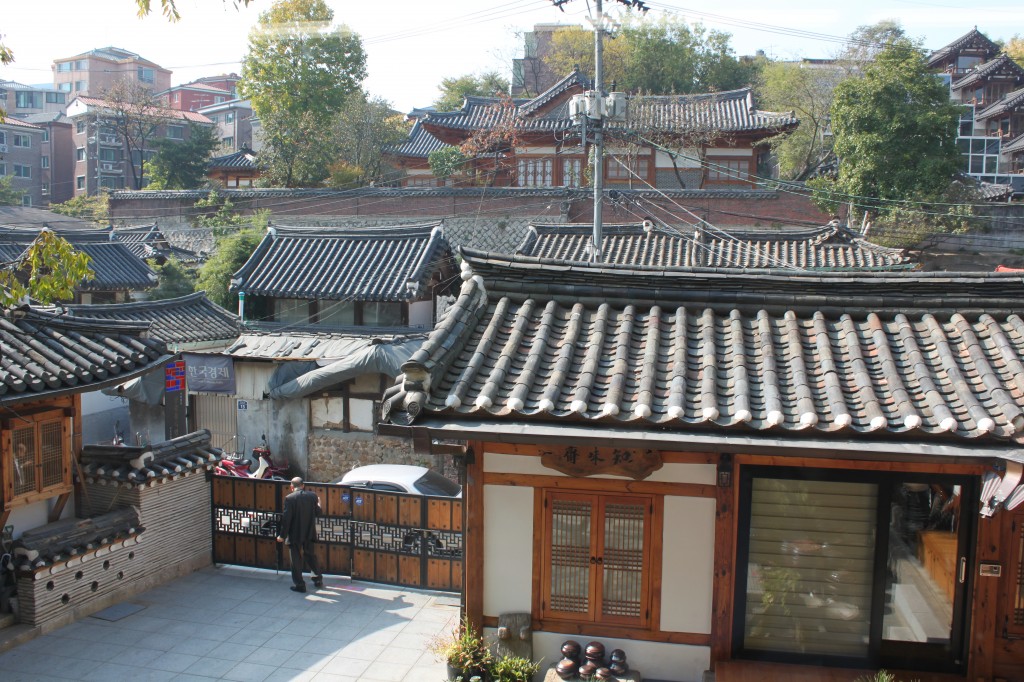
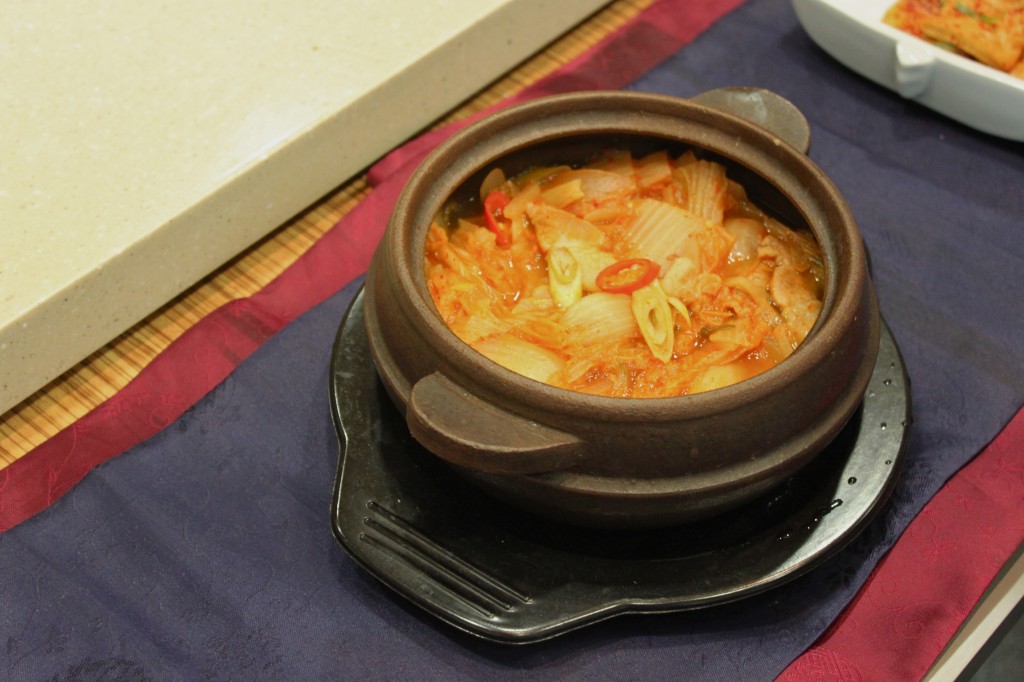
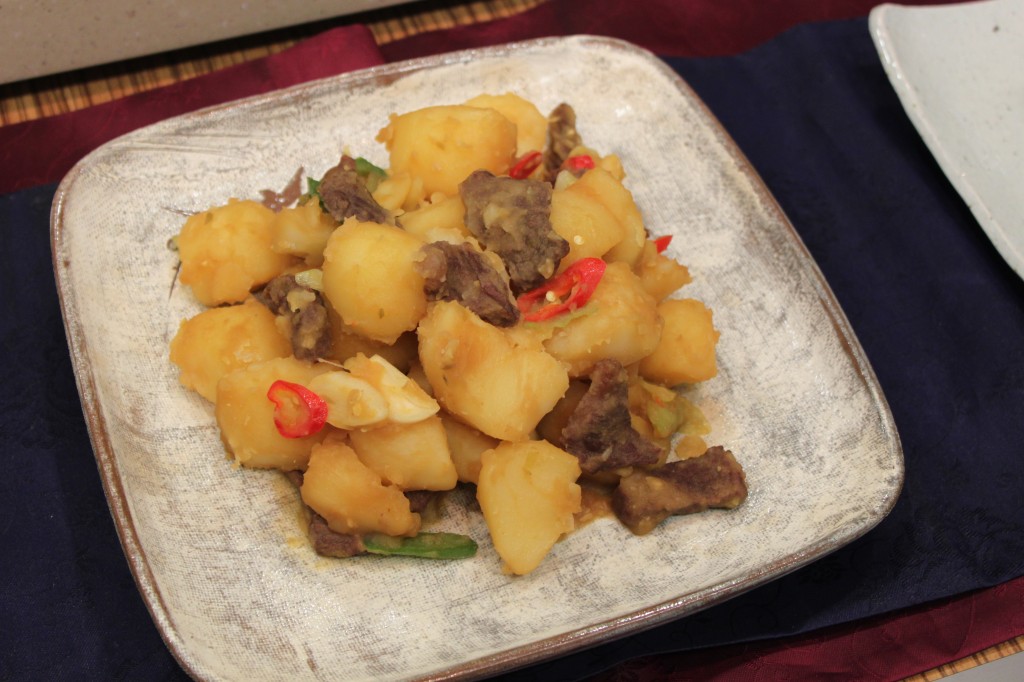
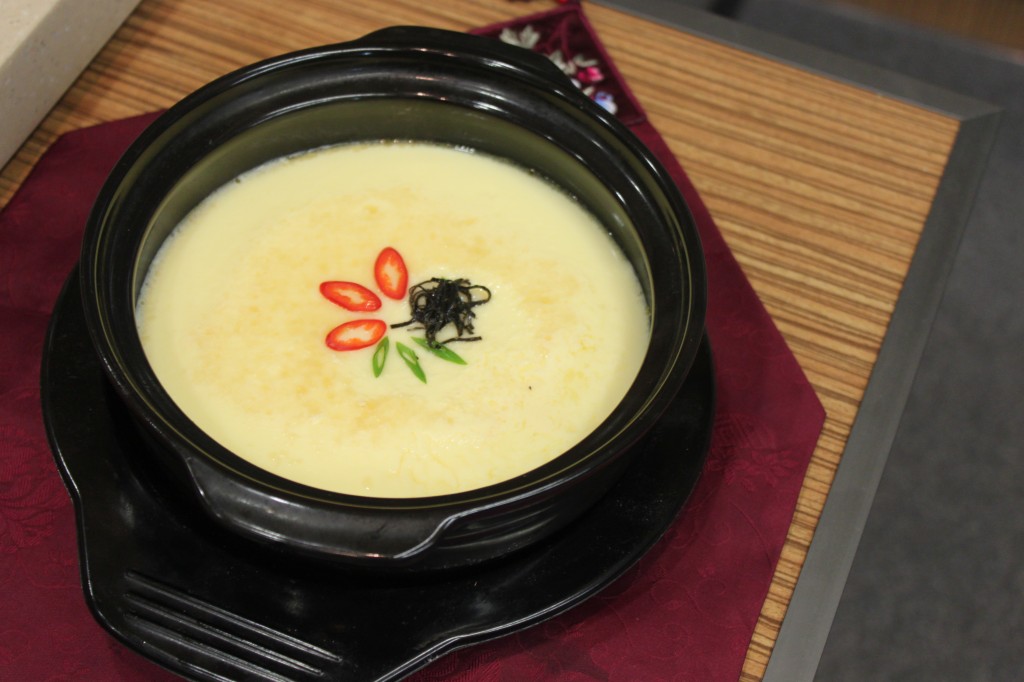
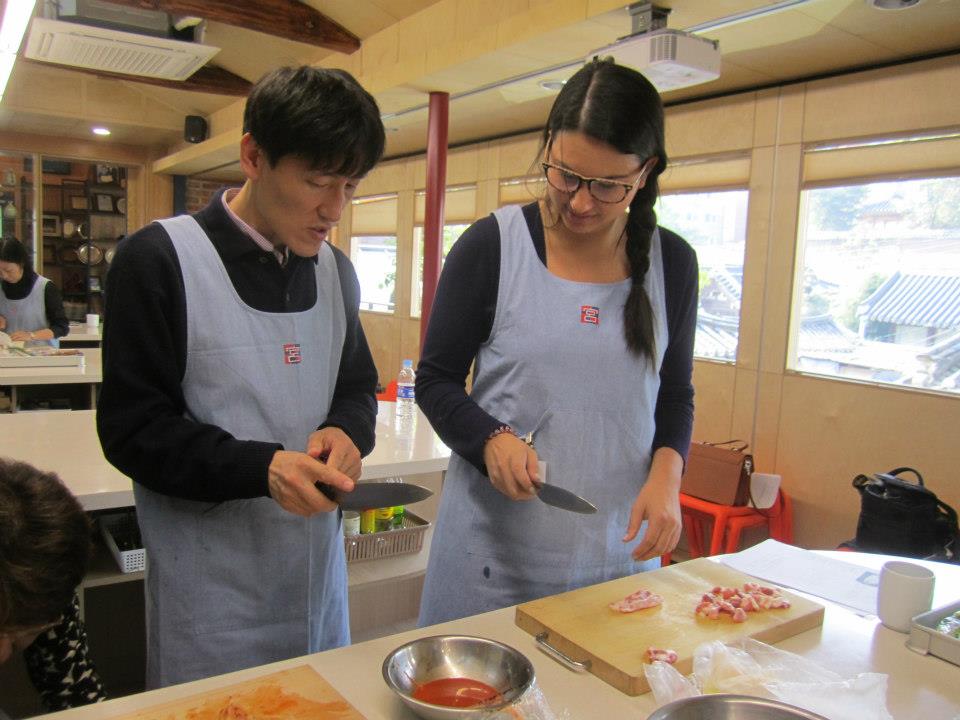
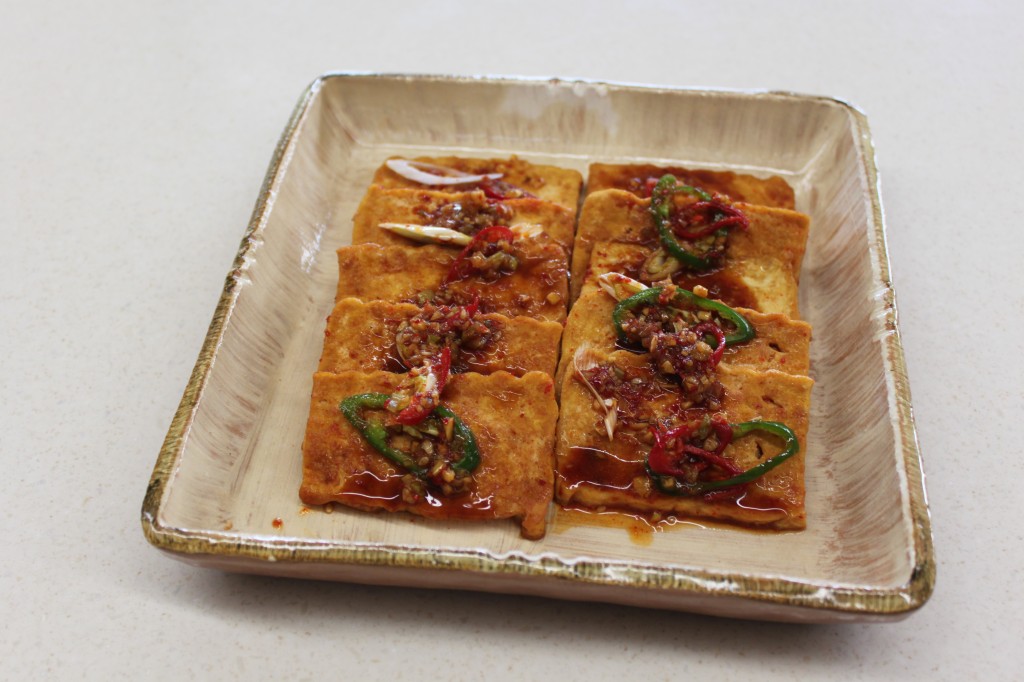
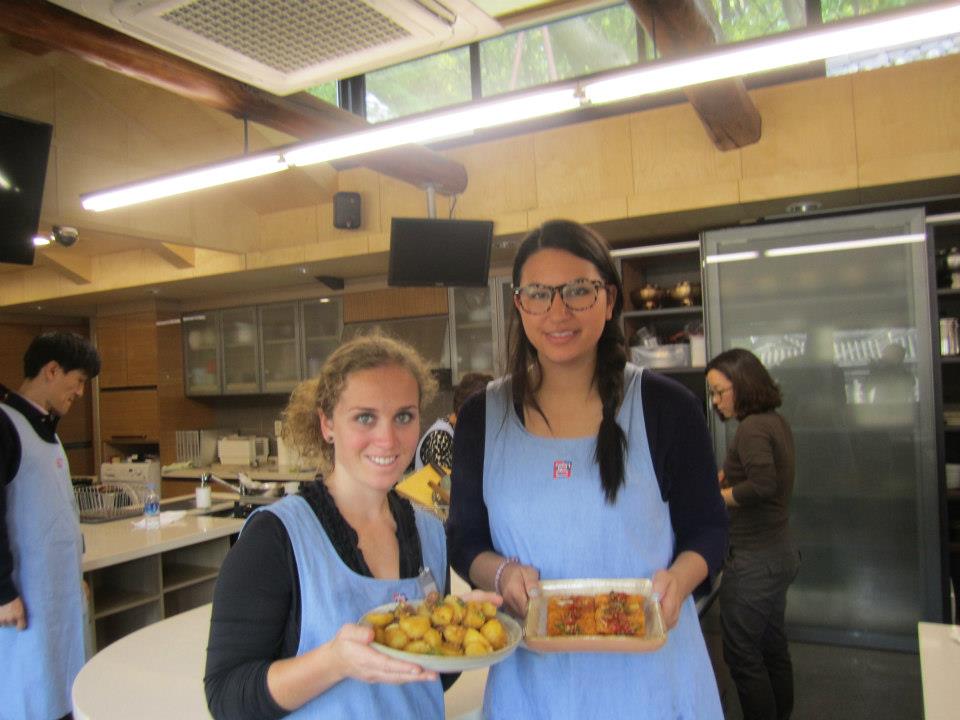
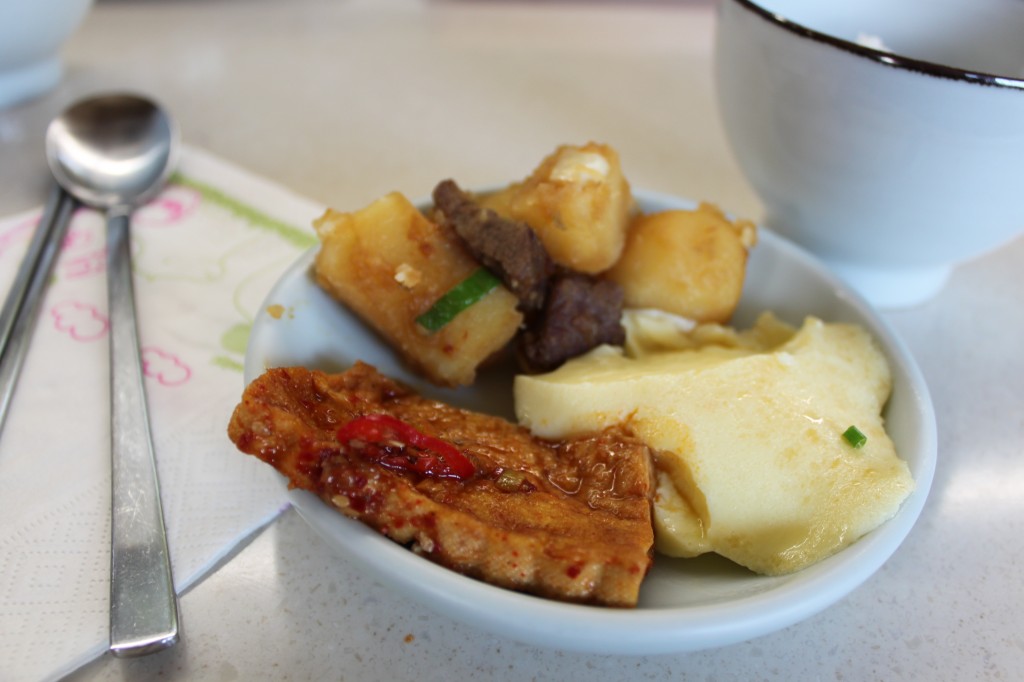

I caught on to this quite late in the game – but now I make sure not to miss it. I have been very lucky with attending great cooking classes in Vietnam (Morning Glory – Hanoi) and Hutong Cooking in Beijing. For both I signed up to do the market tours preceding the classes and it was worth every penny. Thank you for this info, when my sisters come to visit me in Korea this Christmas, I will be sure to add this on our list. Kamsahamnida
I’m glad I could help out! You will enjoy it a lot. Thanks for the comment- I’m going to check out the cooking classes in Hanoi and Beijing for when I’m there next year.